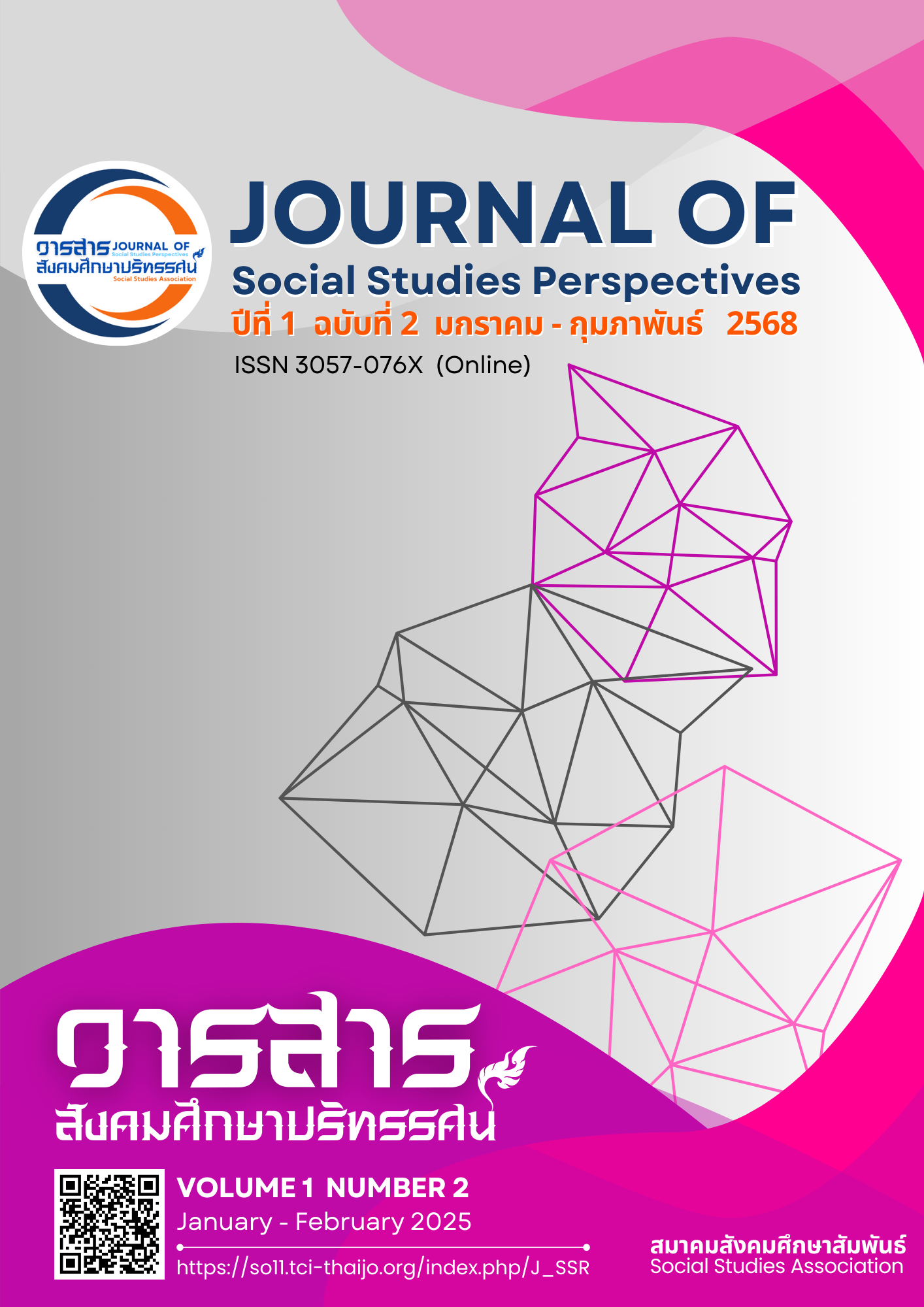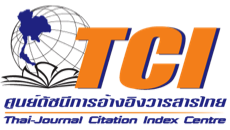AI AND EDUCATION: THE ULTIMATE INTELLIGENT ASSISTANT FOR ENHANCING LEARNING
DOI:
https://doi.org/10.64186/jsp1310Keywords:
AI and Education, Artificial Intelligence, AIAbstract
The integration of Artificial Intelligence (AI) into education serves as an effective tool to enhance learning. By applying AI technology to teachers, learners, and educational institutions, it facilitates improved learning outcomes. AI supports personalized learning through Adaptive Learning systems, which adapt content and teaching methods to suit the unique needs and potential of each learner. It enables the development of interactive learning materials, skill-level-based adaptive assessments, personalized recommendations, and increased motivation for learners. Furthermore, AI has the potential to address educational inequality by creating equitable opportunities and expanding access to learning for all groups, including individuals with language or learning barriers. It also enhances teachers’ technological skills, instructional management capabilities, and the readiness of educational institutions to prepare for a future.
References
Announcement from the Ministry of Education on the Ministry of Education's Educational Policy for the Fiscal Year B.E. 2568-2569. (2024, November 13). Government Gazette. No. 141 Section 309 D. page 11–13.
Chatwattana, P1., Yangthisarn, P2., & Tabubpha, A3. (2024). The Educational Recommendation System with Artificial Intelligence Chatbot: A Case Study in Thailand. International Journal of Engineering Pedagogy, 14(5).
Chiang Mai University. (2022). Report on the implementation of the AI Tutor project for teaching university-level physics. Faculty of Science, Chiang Mai University.
DIA. (2024). AI and Education: The Ultimate Intelligent Assistant for a New Dimension of Better Learning. in-education.
Digichina Stanford. (2017). Full Translation: China’s ‘New Generation Artificial IntelligenceDevelopment Plan’. https://digichina.stanford.edu/work/full-translationchinasnew-generation-artificial-intelligence-development-plan-2017
Dutta, S1., Ranjan, S., Mishra, S2., Sharma, V3., Hewage, P4., & Iwendi, C5. (2024, February). Enhancing educational adaptability: A review and analysis of AI-driven adaptive learning platforms. In 2024 4th International Conference on Innovative Practices in Technology and Management (ICIPTM) (pp. 1-5). IEEE.
ETS. (2023). AI and Education in 2030: Opportunities and Challenges in Learning. www.ets.kmutt.ac.th. https://www.ets.kmutt.ac.th/post/ai-in-education
Ezzaim, A1., Dahbi, A2., Aqqal, A3., & Haidine, A4. (2024). AI-based learning style detection in adaptive learning systems: a systematic literature review. Journal of Computers in Education, 1-39. Forbes. (2019). Why Is China The World's Leader In Edtech?. www.forbes.com . https://www.forbes.com/sites/sites/ricardogeromel/2019/04/05/ why-is-china-the-worlds-leader- inedtech/?sh=15772 d95756
Forero-Corba, W1., & Bennasar, F. N2. (2024). Techniques and applications of Machine Learning and Artificial Intelligence in education: a systematic review. RIED-Revista Iberoamericana de Educación a Distancia, 27(1).
Garcia Castro, R. A1., Chura-Quispe, G2., Velarde Molina, J. F3., Espinoza Ramos, L. A4., & Almonte Durand, C. A5. (2024). Bibliometric review on teaching methods with artificial intelligence in education. Online Journal of Communication and Media Technologies, 14(2), e202419.
Hairiyanto, Sartika, E., Fransiska, F. W., & Aslan. (2024). Understanding the students’ english learning achievement and home environment supports during school closure to respond to pandemic at private madrasah tsanawiyah at-takwa sambas. International Journal of Teaching and Learning, 2(4), Article 4.
Judijanto, L1., Atsani, M. R2., & Chadijah, S3. (2024). Trends In The Development Of Artificial Intelligence-Based Technology In Education. International Journal of Teaching and Learning, 2(6), 1722-1723.
Lohakan, M1., & Seetao2, C. (2024). Large-scale experiment in STEM education for high school students using artificial intelligence kit based on computervision and Python. Heliyon, 10(10).
Miao, F1., & Shiohira, K2. (2022). K-12 AI curricula. A mapping of government-endorsed AI curricula. UNESCO Publishing, https://unesdoc. unesco.org/ark:/48223/pf0000380602, 3, 1144399.
Mochizuki, Y1., & Vickers, E2. (2024). UNESCO, the geopolitics of AI, and China’s engagement with the futures of education. Comparative Education, 1-20.
Nkechi, A. A1., Ojo, A. O2., & Eneh, O. A3. (2024). Impact of Artificial Intelligence in Achieving Quality Education.
Nurson, N. L. (2024). Program Paket Kesetaraan Upaya Mengatasi Angka Putus Sekolah. MULTIPLE: Journal of Global and Multidisciplinary, 2(1), 838-844.
OECD. (2018). PISA 2018 results: Combined executive summaries. OECD Publishing.
Office of the Basic Education Commission (OBEC). (2021). Guidelines for Proactive Teaching and Learning (Active Learning). OBEC.
Office of the Education Council (OEC). (2020). AI for enhancing learning. Sweet Chili Graphics Co., Ltd.
Office of the Education Council (OEC). (2024). The application of AI in learning management: Examples of practices from abroad. Sweet Chili Graphics Co., Ltd.
Office of the Royal Society. (2019). Computer and information technology terminology. www.royin.go.th. https://www.royin.go.th
Sharma, D. S. (2024). Fostering inclusive education: harnessing ai in teacher training for digital equality. Genic Books Publisher PVT.LTD
Sriwat, K. (2024). When Education Faces AI: Which Aspects Must Thai Education Prepare For?. www.eef.or.th. https://www.eef.or.th/clip-ai-for-teaching-and-learning.
Sperling, K1., Stenberg, C. J2., McGrath, C3., Akerfeldt, A., Heintz, F., & Stenliden, L. (2024). In search of artificial intelligence (AI) literacy in Teacher Education: A scoping review. Computers and Education Open, 100169.
Suchato, A1., Prathanwanit, N2., Peerawat Chomphuyod, P3. & Panida Wiriyachaiyaporn, P4. (2023). Complete research report on the study of applying artificial intelligence to develop reading skills for elementary school students. OEC.
The Equitable Education Fund (EEF). (2023, August 31). AI: A New Dimension of Learning. [Video].
YouTube. https://www.youtube.com/watch?v=fyfnSGwjTIk
Waluyo, B1., & Kusumastuti, S2. (2024). Generative AI in student English learning in Thai higher education: More engagement, better outcomes?. Social Sciences & Humanities Open, 10, 101146.
Downloads
Published
How to Cite
Issue
Section
Categories
License
Copyright (c) 2025 Journal of social studies perspectives

This work is licensed under a Creative Commons Attribution-NonCommercial-NoDerivatives 4.0 International License.
The article is published under the Creative Commons Attribution-NonCommercial-NoDerivatives 4.0 International (CC BY-NC-ND 4.0) license, which allows others to share the article while giving appropriate credit to the author. It prohibits the use of the article for commercial purposes or the creation of derivative works. Any other reuse or reproduction requires permission from the journal.










